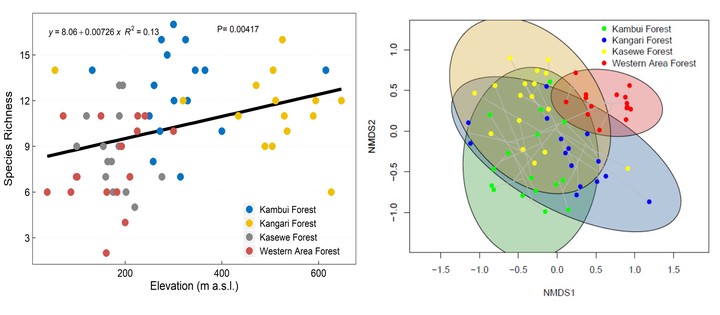Plant diversity and regeneration potentials in protected area forests of Sierra Leone
Abstract
Protected areas (PAs) worldwide are considered a reservoir for biodiversity conservation and an engine for ecosystem function and services. The regeneration potential of tropical forests in PAs is crucial to plant diversity, survival, and preservation amid climate change in the 21st century. The PAs conservation and management status of Sierra Leone is uncertain. This study assessed the seedlings, saplings, and trees species diversity, abundance, richness, and regeneration status of tropical forests in four PAs across Sierra Leone. We sampled 60 quadrats in total, with each having a dimension of 20m × 20m. We found only a few new species with good regeneration potential in all the forest PAs were assessed, indicating that the resilience of these forests is relatively low in the face of anthropogenic activities especially shifting cultivation and logging. Plant diversity index and soil factors were positively correlated, indicating that a decrease or increase in soil physical and chemical properties could affect speciation. The results show that diameter class distribution mainly falls within the 0-30cm category. Furthermore, abiotic factors (like precipitation and temperature), species richness, ecosystem complexity, and overstory were predicted to significantly influence the regeneration and flora diversity of the PAs forests. The results imply that PAs in Sierra Leone are going through severe exploitation. Plant diversity and richness are low, and the regeneration ability is poor due to weak conservation strategies and approaches. It is recommended that strategic planning and forest enrichment policies be instituted to mitigate future PAs' forest exploitation.
